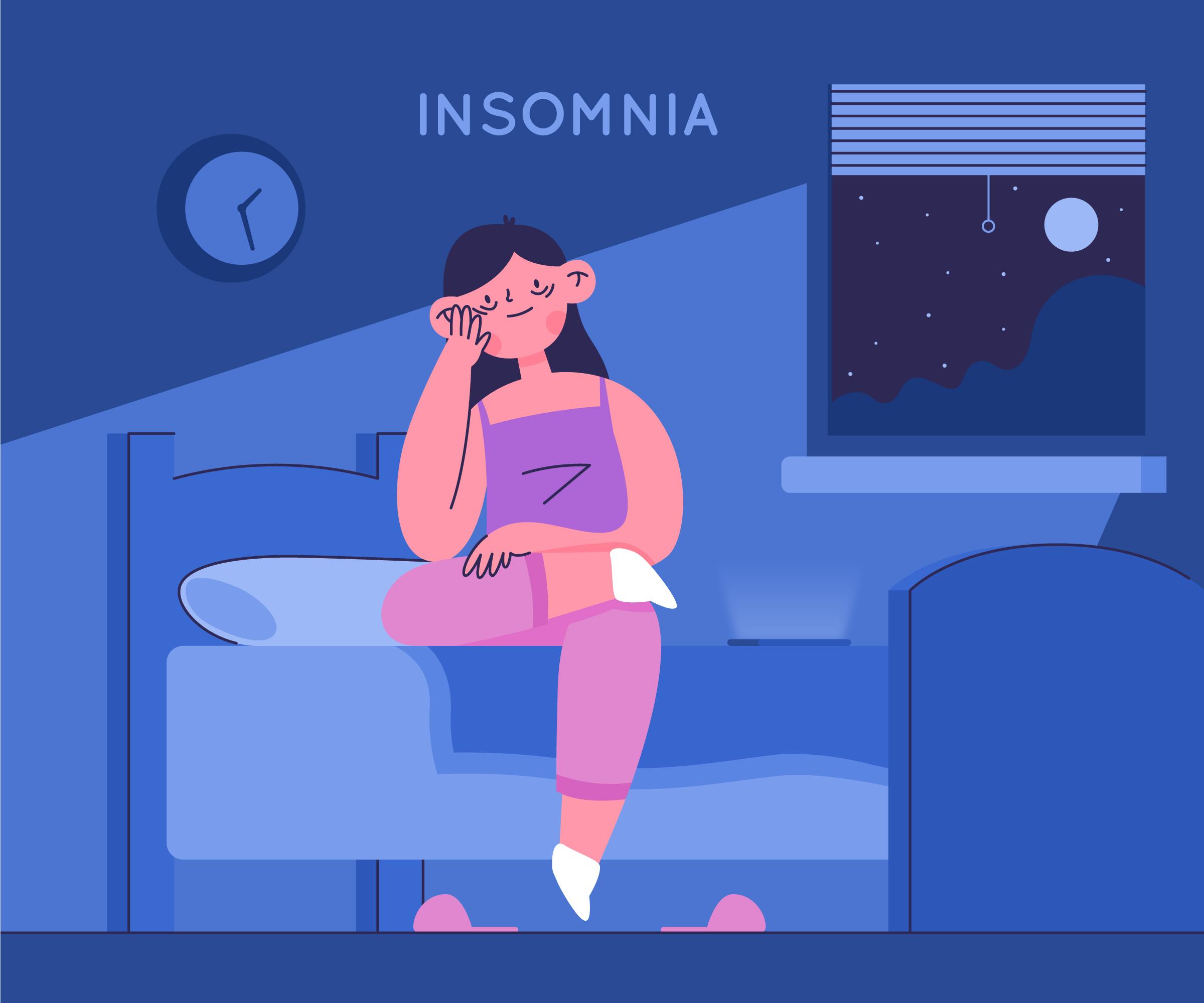Insomnia
Nowadays, insomnia is afflicting many people due to life stress or even genetic variantions, which can be very nagging and exhausting. This sleep disorder has an influence on 10-15% of the general population and especially escalated during COVID-19 pandemic, when a lot of people were forced to stay at home in fear of the lethal virus. In spite of increased consciousness and medicine availability, the treatment of insomnia is still a very thorny issue.
Unfortunately, there can be many misleading causes, therefore the main root of the insomnia is hard to find. However, stress is mainly responsible for sleep disorder and cognitive behavioral therapy may be effective in the treatment, which mostly depends on own needs, without taking any redundant sleeping pills. Incessant stress springs from plenty concerns, for instance about social life, health or trauma; these problems form over time and get worse during high-pressure situations. What is more, actions, such as having an irregular bedtime schedule and using electronic devices before bed, have a high influence on aggravation of the insomnia. Breus (2023) says that blue light suppresses melatonin, the hormone, which is very vital for being well-rested. On top of that, caffeinated products, especially coffee or tea should be limited because so much energy is given and the organism is affected for up to eight hours; however, a reasonable consumption is crucial. The same goes for alcohol, which makes people torpid and it is seen as a good way to fall asleep but, alas, the natural sleep cycle is disrupted. Another point to consider is that other medications can affect us negatively, for instance painkillers, medications for asthma or blood pressure, which contain stimulants that hinder from sleeping.
Insomnia manifests with fatigue, malaise and a way more; it is highly connected with an individual person. In fact, sleep can be interrupted by waking up during the night or a person cannot fall asleep for a long period of time. For this reason, there is a higher chance to develop depression or anxiety, which can lead to isolation from society or even worse, to suicide. Health can be put at risk because of other coexisitng diseases, such as diabetes, stroke and obesity. Vgontzas (2009) emphasized that insomniac adults, compared with healthy people that sleep normally, have a higer blood pressure and what is more, greater risk of hypertension. Another point to consider is the brain, which may have trouble with memorization and concentration; studying and other activities are constricted. Consequently, accidents are more likely to happen, for instance behind the wheel or at work, when the brain is distracted and the lack of rest cannot be handled. Motivation is decreased, futher actions are prevented and a person is idle, behavioral issues are also noticed, such as hyperactivity or aggressiveness, which can be very perilous. Insomnia is a disruptive disorder and these problems need to be treated as fast as possible to avoide all the unnecessary side effects that make us feel unwell.
This study has clearly illustrated causes and effects of insomnia, which may be helpful with diagnosing sleep disorder. The key to prevent insomnia is to observe yourself and if necessary, to reach for a medical advice. Besides exhaustion, there are plenty of other side effects that can occur easily at any stage of life and what is more, they can be caused by simple actions. A healthy lifestyle have a big impact on well-being, therefore worries are reduced, which are the major problem while falling asleep. In summary, the treatment of insomnia may be puzzling, however it can be treated with a doctor’s help or alone, for example by sticking to a regular sleep schedule and what is more, by being consistent.
Resources:
1. https://onlinelibrary.wiley.com/doi/abs/10.1002/da.10151
2. https://journals.physiology.org/doi/full/10.1152/physrev.00046.2019
3. https://www.nature.com/articles/s41598-023-30173-2
4. https://www.medicalnewstoday.com/articles/9155#causes
5. https://www.mayoclinic.org/diseases-conditions/insomnia/symptoms-causes/syc-20355167
6. https://www.mayoclinic.org/diseases-conditions/insomnia/in-depth/insomnia-treatment/art-20046677
7. https://thesleepdoctor.com/insomnia/causes-of-insomnia/
8. https://pubmed.ncbi.nlm.nih.gov/19413143/
9. Image by <a href="https://www.freepik.com/free-vector/insomnia-concept-illustration_9925222.htm">Freepik</a>
